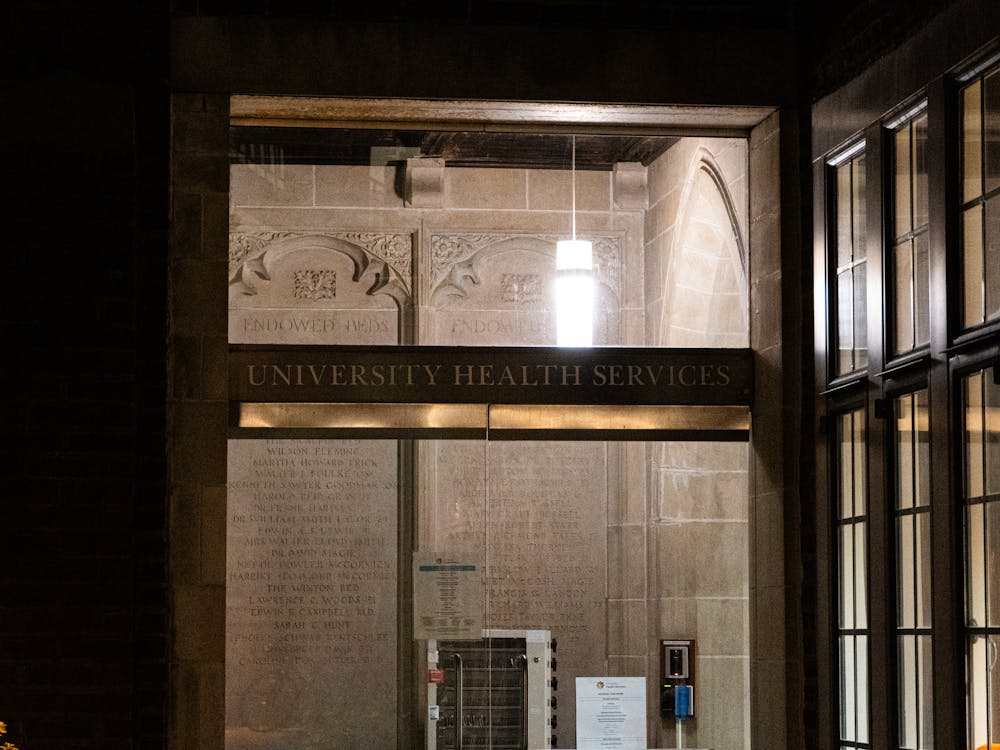For the two University alumni who will likely be shaping the future of affirmative action in the United States this week, their relationships with their alma mater both during and after they graduated hints at their views on the issue.
The Supreme Court did not rule on Thursday in the case Fisher v. University of Texas-Austin but will likely rule next week before the the end of its term.The decision could impact the practice of affirmative action in universities across the country, including Princeton.
Three Princetonians currently sit on the United States’ highest court: Samuel Alito ’72, Sonia Sotomayor ’76 and Elena Kagan ’81. Though Kagan recused herself from the case since she had worked on it in her former capacity as solicitor general, Alito and Sotomayor heard the arguments and were involved in the decision of the case.
Abigail Fisher, the plaintiff, is suing UT-Austin for rejecting her when she applied in in 2008. UT-Austin's admission policy is subject to Texas law and as such it is required to guarantee admission to all applicants who were in the top 10 percent of students at a Texas high school. Fisher was in the top 12 percent and claims that minority students with a lower placement were granted admission while she was rejected because she is white.
The case was heard in federal court in 2009 as well as in a Fifth Circuit panel and both ruled in favor of UT-Austin, saying that the affirmative action standards used in this case were in line with the 2003 decision of Grutter v. Bollinger. Fisher then brought the case to the Supreme Court in October.
Sotomayor is widely predicted to vote in favor of the UT-Austin, while Alito will likely vote in favor of Fisher.
Sotomayor is a self-proclaimed “product of affirmative action.” While a sophomore at the University, she wrote a letter to the editor of The Daily Princetonian in 1974 where she justified a complaint against the University by Puerto Rican and Chicano students, which argued that an institutional pattern of discrimination persisted on campus.
“There are two million Puerto Ricans in the United States and two and a half million more on the island itself. Yet there were only 66 Puerto Rican applicants this year, and only 31 Puerto Rican students on campus,” Sotomayor wrote in her letter. “While there are 12 million Chicanos in the United States, there were only 111 Chicano applicants and 27 students on campus this year.”
During the oral arguments in the Fisher case, Sotomayor questioned the relevance of the complaint, noting that Fisher had already graduated from Louisiana State University and would therefore be ineligible to attend the University of Texas-Austin should the court rule in her favor.
She also thoroughly questioned the definition of “critical mass” — a university is required to have a “critical mass” of minority students in order to comply with the affirmative action standards — and how this is different from a quota system.
“So what are you telling us is the standard of critical mass? At what point does a district court or a university know that it doesn't have to do any more to equalize the desegregation that has happened in that particular state over decades, that it's now going to be stuck at a fixed number and it has to change its rules," Sotomayor said. "At what point and when do we stop deferring to the university's judgment that race is still necessary? That's the bottom line of this case."
Alito’s vote in favor of Fisher is expected in particular due to his connection with the group Concerned Alumni of Princeton in the 1970s. CAP was a group of alumni that worried about the number of minority and female students that were admitted to the University. In order to solve this problem, the group wanted to set a quota limiting the number of women and minorities on campus to 10 to 20 percent of the student population.

During the oral arguments in October, Alito also questioned the definition of critical mass and asked if a critical mass had to be representative of the state of Texas — one of the lawyers said it did not. Alito also asked how the ROTC system played into the affirmative action program, and how two identical candidates of different racial backgrounds would be treated.
Fisher claimed that UT-Austin could have a diverse community under the 10 percent rule, so affirmative action was not necessary. The lawyer for UT-Austin agreed, saying this was possible because "the minorities who are admitted tend to come from segregated racially-identified schools." He said in his brief that affirmative action needed to be in place in order to give privileged minority students a fair chance of admission since they are likely competing in for spots in the top 10 percent with privileged white students.
“I thought the whole purpose of affirmative action was to help students who come from underprivileged backgrounds, but you make a very different argument that I don’t think I’ve ever seen before,” Alito said during the oral arguments. “The top 10 percent plan admits lots of African Americans — lots of Hispanics and a fair number of African Americans. But you say, well it’s faulty because it doesn’t admit enough African Americans and Hispanics who come from privileged backgrounds.”
Affirmative action is mandated for all public universities in the country, and many private universities have complied with the ruling as well on their own volition. However, Title VI of the Civil Rights Act of 1964 forbids racial discrimination in programs that receive federal funding, so private universities in this category — like Princeton — are generally viewed to be obligated to comply.
The ruling for this case is expected next week, on either Monday or Thursday at 10 a.m. Landmark rulings regarding the constitutionality of the Defense of Marriage Act, Proposition 8 and Section 5 of the Voting Rights Act are also expected next week.







